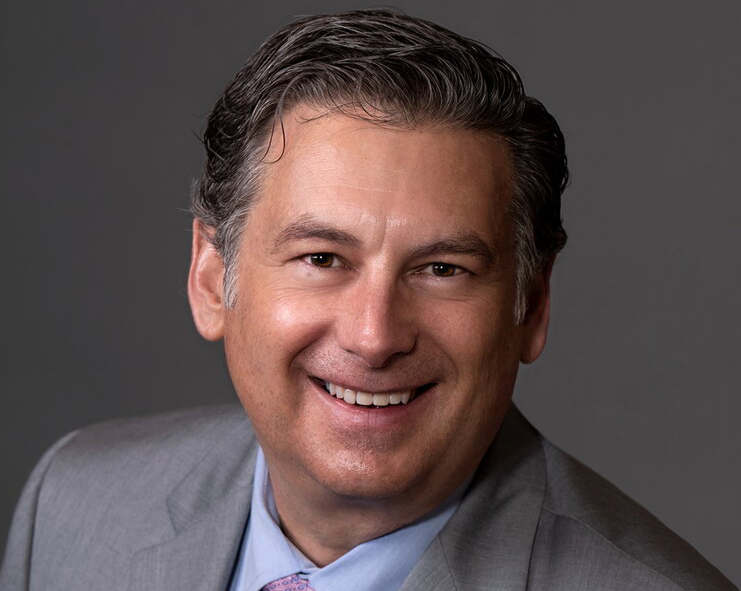State Sen. Chris Wilson will be joining colleagues in the Utah Senate on Tuesday when the 2022 General Session of the 64th Legislature convenes in Salt Lake City.
LOGAN – Utahns wanting a preview of the upcoming legislative session need look no further than a pre-session survey posted online Jan. 13 by state Sen. Chris Wilson (R-District 25).
The 2022 General Session of the 64th Utah Legislature is scheduled from Jan. 18 to Mar. 4. During that 45-day period, lawmakers will debate hundreds of proposals for new laws.
Wilson said Friday that his survey lists topics that are seen as priorities by lawmakers and seeks to solicit the opinions of his constituents about legislative options that Wilson and his colleagues are considering.
The survey leads off by asking respondents to select what they consider to be three top issues from a list of 10 options. Those issues are air quality, business concerns, economic development, education, health care affordability, gun rights, mental health services, tax reform, transportation/infrastructure and water related issues.
Survey respondents are also asked to identify their top budget priority from a list of options that includes public education, higher education, the state’s so called “rainy day fund,” transportation, water, social services and health care.
Lawmakers are already assuming that Utahns’ legislative priorities will include a reduction in state taxes.
“Last year, we successfully navigated economic uncertainties caused by the pandemic and provided nearly $100 million in tax cuts to Utahns,” Wilson explains. “Over the next few weeks, we will be considering an additional tax cut. We have already set aside $160 million to reduce taxes in Utah during 2022 general session.”
That set-aside was made possible because legislative analysts are predicting that the state will have $930 million in new ongoing funds and more than $1 billion in one-time funds to spend this year.
Gov. Spencer Cox has suggested that the $160 million surplus be used to provide a refundable grocery tax credit. But GOP legislative leaders have signaled that they prefer to cut the state’s income tax rate.
Three different bills are already pending in the Legislature to reduce the state income tax rate from 4.95 percent to 4.9, 4.75 or 4.6 percent.
The most modest of those reductions, to 4.9 percent, is estimated to cost the state about $78.5 million a year in reduced tax revenue.
If the entire amount of the $160 million set-aside were directed to an income tax reduction, that would lower the tax rate to 4.85 percent.
House Bill 105, proposed by Rep. Travis Seegmiller, would reduce the tax rate to 4.75 percent and cost the state more than $300 million.
Alternative tax relief options listed in Wilson’s online survey include removing or lessening taxes on social security income; taxes on military retirement benefits; and sales taxes on food purchases. Other possibilities include increasing tax exemptions for military veterans and active-duty service members or reducing the burden of property taxes for senior citizens.
Wilson’s survey also addresses the concept of “backpack” funding for public schools.
“Utah has a strong reputation for providing parents and students with education options and freedoms,” Wilson emphasizes.
“During the height of the pandemic, we saw school learning services vary from district to district. Some Utahns believe we should increase parent choice by creating an option for parents to switch schools while … allowing (state provided) education funding to follow the student.”
Wilson’s survey also solicits public opinions about the issue of transparent public school curricula.
“Some believe school curriculum and teaching materials need more transparency and accountability in Utah,” he explains. “Others think teachers should be free to adapt curriculum and materials to student needs.”
On this topic, survey respondents can choose from options ranging from public review of all teaching materials to total freedom for teachers to develop their own curricula. Other options include streamlining parents’ ability to identify teaching materials they consider inappropriate and establishing consequences for teachers that use inappropriate materials.
The hot button issue of housing affordability is also included in Wilson’s survey.
“Utah is the fastest-growing state in the nation,” the senator points out. “We are currently second in the country for year-over-year increases in housing prices.
“With Utah’s changing demographics, strong economy and diverse job market, housing cost increases have outstripped inflation four to five times over the past year.”
Possible options to address that issue suggested by the Wilson’s survey include more flexible land use, increased housing density along public transit routes and additional state rental assistance.
Other topics addressed by Wilson’s survey that will undoubted be discussed during the upcoming legislative session include the state death penalty, transportation/infrastructure concerns, criminal justice reform, water policy, air quality, election security, data privacy, modernizing the state flag and 2nd Amendment rights.
Logan businessman Chris Wilson was elected to the Utah Senate in 2020, replacing longterm Sen. Lyle Hillyard. His assignments in the Legislature include membership on Senate committees responsible for Health and Human Services, Political Subdivisions and Revenue and Taxation as well as appropriations subcommittees for Higher Education and Infrastructure/General Government.
Wilson’s pre-session survey can be accessed at https://mailchi.mp/8ae235923eb1/pre-session-survey?e=e111348b0d

